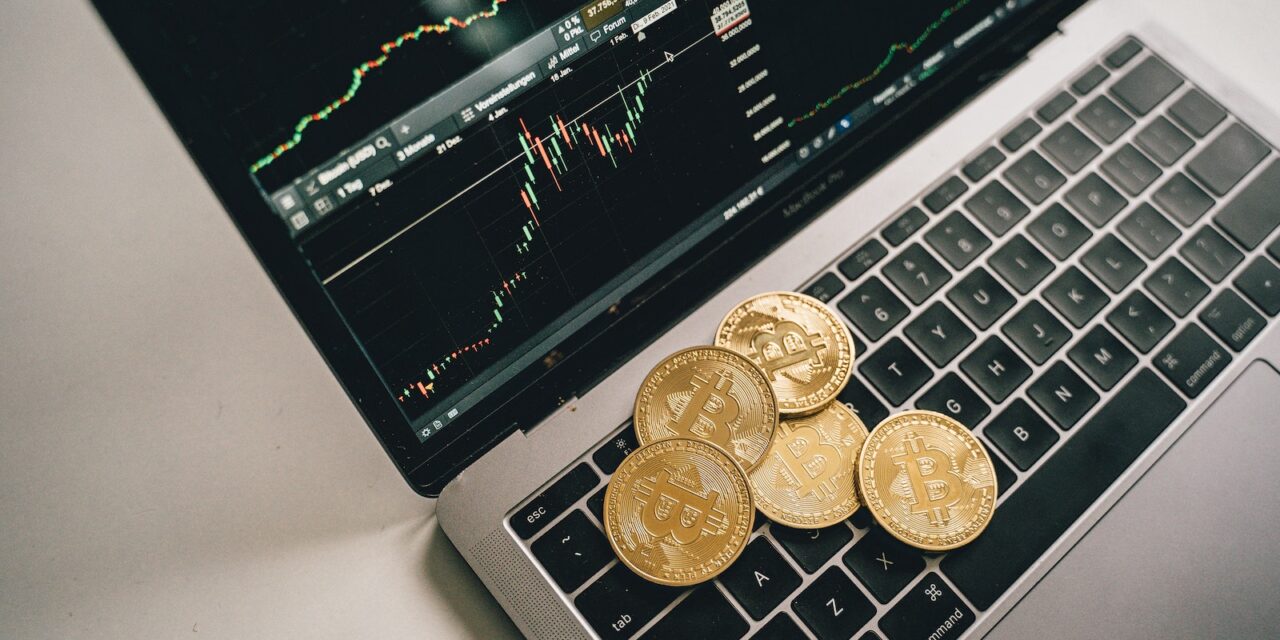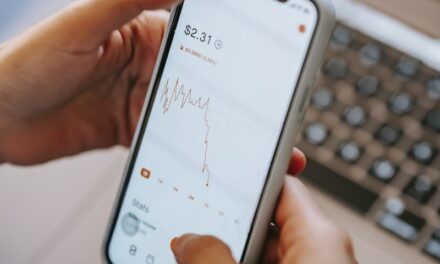In recent years, investors have increasingly popularized online commodity trading in India. The advent of technology has made it easier for investors to access the commodities market and trade in a variety of commodities, which has opened up a whole new world of opportunities for them to diversify their portfolios and take advantage of the potential for higher returns. The Securities and Exchange Board of India (SEBI) regulates online commodity trading in India, and investors can access it through a number of online brokers. With the right knowledge and research, investors can make informed decisions and benefit from the potential of the commodities market.
How to Get Started with Online Commodity Trading in India
Investors are increasingly diversifying their portfolios and taking advantage of the potential for higher returns through online commodity trading in India, which is becoming increasingly popular. With the right knowledge and tools, anyone can get started with online commodity trading in India.
- The first step is to open a trading account with a reliable broker that offers competitive fees and commissions. Personal information and documents such as PAN card and bank details need to be provided to the chosen broker.
- After setting up the trading account, it needs to be funded through a bank transfer or by using a debit or credit card. Trading can begin after the account is funded.
- Understanding the basics of commodity trading is crucial before starting to trade. This includes comprehending the different types of commodities, trading strategies, and risks associated with trading, and placing different types of orders.
- Researching the different commodities and markets available will help identify potential opportunities and make informed decisions about which commodities to trade.
- Lastly, practicing trading with a demo account before trading with real money will help develop trading skills and get a feel for the markets.
Following these steps, anyone can become a successful trader in online commodity trading in India.
Different Types of Commodities Traded in India
The Indian economy relies heavily on various forms of commodities. Physical commodities, such as agricultural products, metals, and energy sources, play a crucial role in the economy. These tangible goods are traded through the National Commodity and Derivatives Exchange (NCDEX) and the Multi Commodity Exchange (MCX). In addition to physical commodities, derivatives also play a significant role in the Indian economy. These financial instruments derive their value from underlying assets, such as commodities, and are traded through the National Stock Exchange (NSE) and the Bombay Stock Exchange (BSE).
India trades not only physical commodities and derivatives but also other commodities such as currency, indices, and ETFs. The Foreign Exchange Market (FOREX) facilitates currency trading, baskets of stocks that reflect a particular market or sector represent indices, and ETFs track an index, a commodity, or a basket of assets. Commodity trading plays a vital role in the Indian economy, with physical commodities and derivatives being the primary forms of trading, while other commodities also contribute significantly.
Gold Trading
Indian investors are increasingly diversifying their portfolios and protecting against inflation by trading gold online. Trading platforms are making gold trading more accessible and affordable. However, investors must conduct their research, monitor market trends, and invest only what they can afford to lose as there are still risks involved.
Silver Trading
Investors can buy and sell silver from home through online trading platforms. Industrial demand for electronics, medicine, and jewelry drives the Indian market for silver. Silver is also an appealing investment due to its status as a safe haven asset that provides a hedge against inflation and economic uncertainty. Online silver trading in India allows investors to potentially earn long-term returns and diversify their portfolios.
Oil Trading
Online oil trading is a relatively new phenomenon in India, but it has quickly gained popularity among traders and investors. With the growth of e-commerce in the country, online trading platforms are becoming increasingly accessible and user-friendly, making it easier for individuals to invest in the oil market. Online trading also provides greater transparency and convenience, allowing traders to access real-time market data and execute trades from anywhere at any time. Despite the many benefits of online oil trading, it is important for traders to do their due diligence and fully understand the risks involved in this volatile market. Overall, online oil trading has the potential to revolutionize the way Indians invest in the oil market, offering greater flexibility and accessibility than ever before.
How to Find the Best Broker and Platform for Commodity Trading in India
Selecting the best broker and platform for commodity trading in India requires considering a few key factors.
- One must compare the fees of different brokers and platforms to ensure they are getting the best deal.
- Additionally, it is crucial to ensure that the broker and platform offer the commodities one is interested in trading and have reliable customer service available when needed.
- It is also essential to select a broker and platform that prioritizes security and is regulated by relevant authorities in India.
- Lastly, researching and selecting a broker and platform with a good reputation in the industry is important.
By considering these factors, one can find the best broker and platform for commodity trading in India, ensuring the best deal and service for their needs.
How is Online Commodity Trading in India Regulated?
In recent years, the number of traders in the online commodity trading sector in India has increased exponentially. This is due to the increasing availability of online trading platforms, which have made it easier for traders to access the markets. However, this growth has also necessitated a robust regulatory framework to maintain fair and transparent markets.
The primary regulator of the commodity markets in India is the Securities and Exchange Board of India (SEBI). SEBI regulates the activities of exchanges, brokers, and intermediaries in the commodity markets and sets rules and regulations for commodity trading, including online trading.
SEBI has introduced various measures to ensure fair and transparent markets, including a real-time monitoring system to detect suspicious activities and a margin system to protect investors. Additionally, SEBI has introduced a price discovery mechanism to ensure fair pricing and a surveillance system to detect fraudulent activities.
Overall, the regulatory framework for online commodity trading in India is comprehensive, ensuring fair and transparent markets and protecting investors from fraudulent activities.
Strategies for Online Commodity Trading in India
Investors are increasingly turning to online commodity trading in India to diversify their portfolios and potentially earn higher returns. With the right strategies, investors can profit from the volatile commodities markets. In this article, we will explore different strategies for online commodity trading in India.
- Technical Analysis – to study a commodity’s historical price movements and predict future price movements. This strategy can identify trends and patterns in the market to inform trading decisions.
- Fundamental Analysis – to study underlying factors that affect a commodity’s price, such as supply and demand, economic conditions, and political events. Understanding a commodity’s fundamentals can lead to more informed trading decisions.
- Options Trading – to buy and sell options contracts, which give them the right to buy or sell a commodity at a predetermined price. This strategy can hedge against market volatility and take advantage of price movements.
- Futures Trading – to buy and sell contracts for a commodity at a predetermined price. This strategy can also take advantage of price movements and hedge against market volatility.
- Spread Trading – to buy and sell two different commodities at the same time, taking advantage of price movements and hedging against market volatility.
By understanding these strategies, investors can make informed trading decisions and potentially earn higher returns in online commodity trading in India.
The Benefits
One of the primary benefits of online commodity trading in India is the ability to access a wide range of commodities. Investors can choose from a variety of commodities, including agricultural products, metals, energy, and financial instruments. This allows investors to diversify their portfolios and take advantage of different market conditions.
Another benefit of online commodity trading in India is the potential for higher returns. Commodity prices can be volatile, and investors can take advantage of these fluctuations to make a profit. Additionally, investors can use leverage to increase their returns. Leverage allows investors to control a larger position with a smaller amount of capital, which can result in higher returns.
Online commodity trading in India is gaining popularity due to its benefits. These include access to a variety of commodities, the potential for higher returns, and the convenience of trading from home.
The Risks
Market Volatility – Commodity prices experience high volatility, and investors should remain aware of the potential for large price swings. Failure to manage positions may result in significant losses. Moreover, global economic and political events can significantly impact prices in the commodities market.
Liquidity Risk – Commodity markets often have less liquidity than other financial markets. This makes it difficult to enter and exit positions quickly, leading to slippage.
Counterparty Risk – Trading commodities online expose investors to the risk of a counterparty defaulting on their obligations, resulting in significant losses.
Regulatory Risk – Investors must know the regulations of the commodities market to evade fines and penalties.
Fraud – Researching potential trading partners is crucial for online commodity trading as there is a risk of fraudsters targeting and exploiting unsuspecting investors.
By understanding these risks, investors can make informed decisions and manage their positions accordingly.
Conclusion
Online commodity trading in India has become increasingly popular in recent years due to its convenience and low cost. Traders can now trade in a variety of commodities and access the commodities market from anywhere in the world. The Indian government has ensured the security and reliability of the online commodity trading system by taking steps. It is expected that online commodity trading will attract more traders in the future as its popularity continues to grow.
Check out our full review of stock trading in India here, and find out the advantages of trading foreign stocks online.










